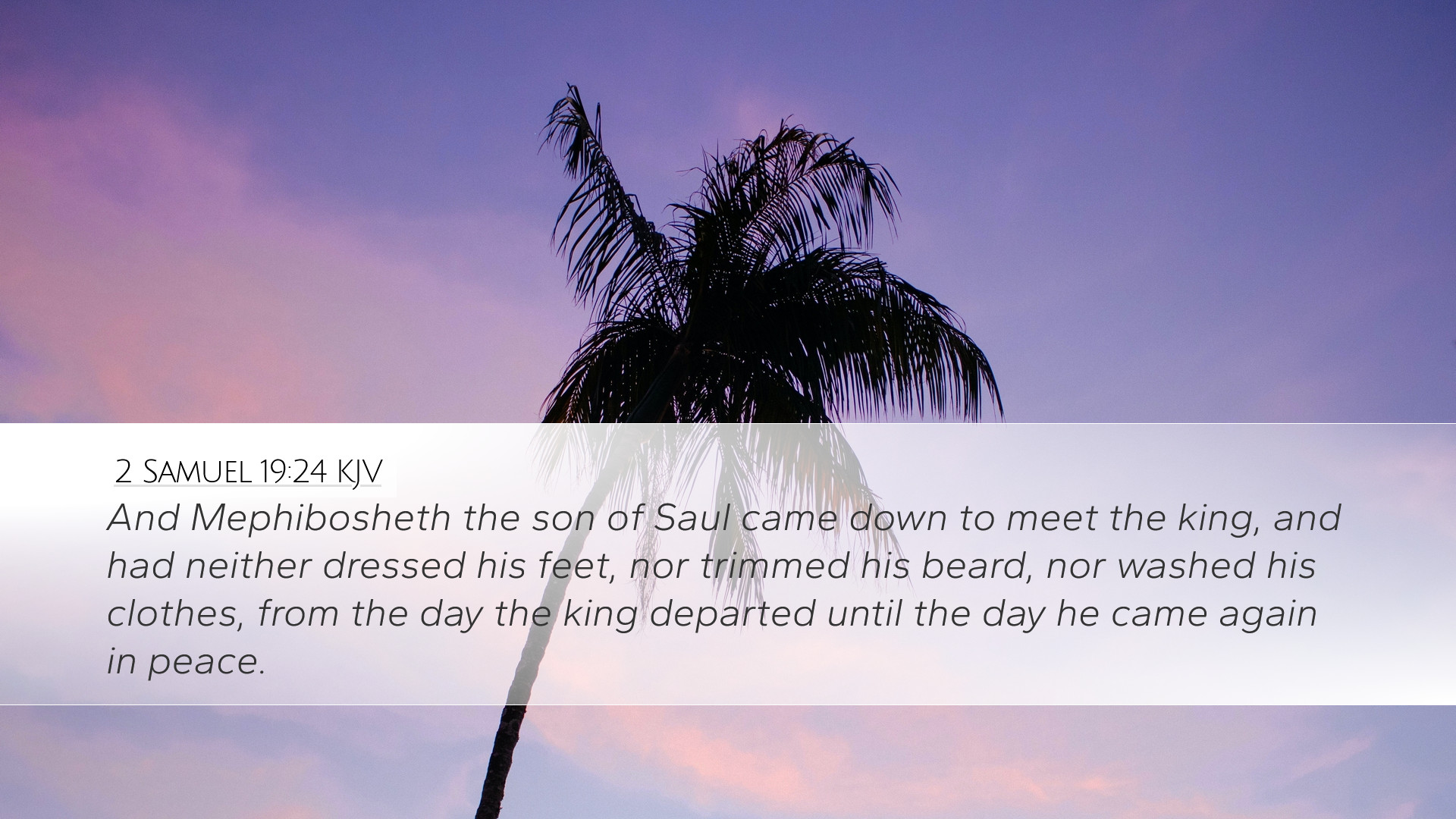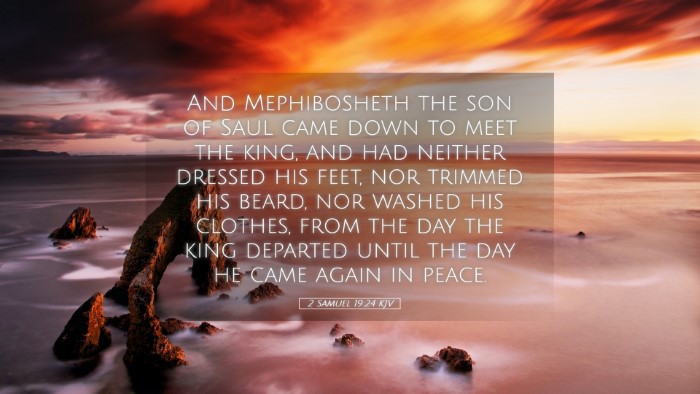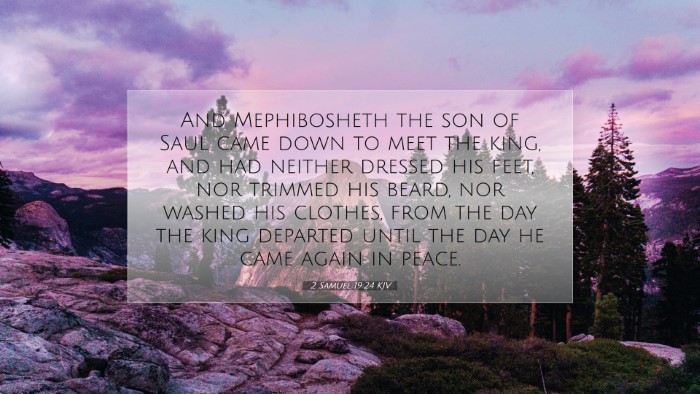Commentary on 2 Samuel 19:24
Verse: 2 Samuel 19:24 - "And Mephibosheth the son of Saul came down to meet the king, and had neither dressed his feet, nor trimmed his beard, nor washed his clothes; from the day the king departed until the day he came again in peace."
Introduction
This verse captures a poignant moment in the narrative of David's kingship and highlights the themes of loyalty, grief, and the complex nature of human relationships. Mephibosheth, the son of Jonathan and grandson of King Saul, serves as a powerful figure whose actions and state of being reflect a broader commentary on the nature of loyalty in the face of political upheaval.
Analysis of Mephibosheth's Condition
Mephibosheth's unkempt state signifies his deep sorrow and distress after King David's departure. According to Matthew Henry, this was indicative not only of personal grief but also a visible testimony of his loyalty to David amidst the chaos during Absalom's rebellion.
Symbolism of Physical State
The deliberate neglect of personal grooming symbolizes Mephibosheth's mourning. Albert Barnes notes that in ancient Israel, not dressing properly and neglecting hygiene were signs of mourning and despair. The lack of preparation displayed Mephibosheth's emotional state—he had not simply lost a king but a friend and protector.
Loyalty and Allegations
Mephibosheth’s actions must also be seen in the context of the allegations made against him by Ziba, the servant who claimed he had betrayed David. Adam Clarke provides insight by pointing out that Mephibosheth's nonresponse to Ziba's claims emphasizes his genuine loyalty. His failure to groom himself was not just mourning but could also serve as a protest against Ziba's betrayal.
Theological Implications
This verse invites us to reflect on loyalty as a theological virtue. In challenging times, Mephibosheth stands as a testament to unwavering fidelity, illustrating the nature of true allegiance amidst turmoil.
Lessons on Suffering and Loyalty
- Suffering as a Form of Witness: Mephibosheth’s physical condition was a witness to his state of heart. From a theological standpoint, the suffering of God's people often serves as a testament to their faithfulness and loyalty to Him, mirroring the suffering of Christ.
- The Cost of Loyalty: Loyalty to God and to leaders may sometimes lead to personal suffering or misrepresentation. Mephibosheth’s state serves as a reminder of the potential cost of allegiance in a fallen world.
- Divine Restoration: God's ultimate restoration of David parallels the hope for restoration we have in Christ. Mephibosheth, despite his distress, illustrates a redemptive story—one where faithfulness does not go unnoticed by the divine.
Contemporary Application
For pastors and leaders today, this passage serves as a rich ground for reflection on their leadership roles and the relationships they cultivate. Loyalty should be fostered through empathy and understanding rather than mere political allegiance.
Encouragement for the Church
For congregations, the verse challenges them to support leaders amidst conflict. Just as Mephibosheth remained steadfast in his true allegiance, believers are called to uphold and support their spiritual leaders during trials. Matthew Henry argues that congregational loyalty manifests through prayer, encouragement, and open dialogue, particularly in uncertain times.
Conclusion
In closing, 2 Samuel 19:24 serves as a profound reminder that our outward actions often reflect our inward states, particularly during tumultuous times. Mephibosheth’s encounter with the returning King David not only restores the relationship between them but also gives us a glimpse into the heart of loyalty—a virtue that mirrors God's unwavering loyalty to His people. As we reflect on this passage, may we strive to embody the faithfulness and integrity that Mephibosheth demonstrated, recognizing that in times of distress, our true character is revealed.


